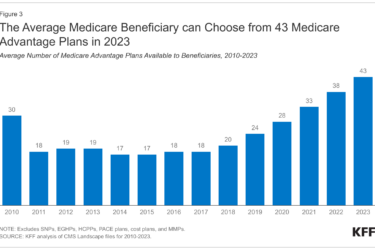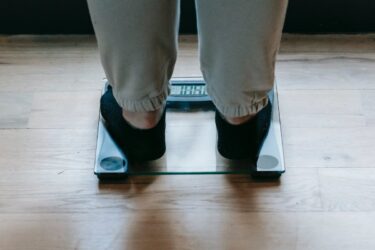From his friendship with a cellist to his adventures with medical marijuana, Los Angeles Times columnist Steve Lopez often draws on highly personal material in his work. His latest series, surrounding the end of his father’s life, mines that vein even more deeply. Lopez has initiated a community-wide conversation about death and dying through his columns, his profiles of several people confronting life’s end, and reader contributions, which have snowballed since the series began this summer.
New journalists’ resource on aging debuts
AHCJ has rolled out another Core Curriculum topic on its website. “Aging” is the second in a series of core topic subject areas the organization believes today’s health journalists will need to master to cover the beat well.
Colorado-based writer Judith Graham is AHCJ’s topic leader on aging. She produces reporting guides, seeks out reliable resources, assigns stories and blogs regularly. She works with Pia Christensen, AHCJ’s managing editor/online services, to find the latest material, edit contributions and make the site as easy to navigate as possible.
If you have questions or suggestions for future resources on the topic, please send them to judith@healthjournalism.org.
Dec. 28: Open the discussion on dying
What I’ve learned along the way is that we have to get past the fears and cultural taboos that prevent us from discussing death with loved ones. We need to make our wishes known in advance healthcare directives, sparing friends and family the psychological trauma of impossibly difficult decisions. We need more information on end-of-life choices and broad reforms of Medicare, which gladly pays for the tools of slow suffering in terminal patients — feeding tubes, hip replacements, etc.— but is stingier about paying for palliative care despite lower costs and higher patient satisfaction.
Dec. 18: Wishing for the right to make that final exit
Since I began writing about these issues in July, when my father took ill, I’ve had readers argue that how and when we die is not for us to decide, but is in the hands of a higher authority. I respect that view, but I’ve heard from far more readers who make a humane argument for options to avoid lingering and painful deaths. Many say that once they reach the point where they are simply being kept alive – as opposed to living – they want to have the choice of ending their suffering.
Dec. 14: Having to think about the unthinkable
Most people don’t like to plan for dying, but in our state of denial, we leave ourselves vulnerable to conditions we would never want. Arrangements for the end of life are essential.
Dec. 11: A terrible choice to ponder
Medical advances now keep people like my father alive in severely debilitated states, at ever-soaring costs to the public. Is that a humane, compassionate approach?
One doctor told me that our fragmented healthcare system has a built-in incentive to give my dad a feeding tube. The surgeon and hospital would get paid, the nursing home would benefit because Medicare would cover 100 more days and my family would be spared that cost. The only losers would be taxpayers, and maybe even my father, who has already been cut open, probed and filled with buckets of medication, only to become sicker, angrier and more depressed.
Dec. 4: Not ready to die, but prepared
The cancer that started 11 years ago has now ravaged the body of Freddie Ramos. It attacked a kidney first, then a lung, and the 57-year-old family man knows that death waits in the near distance.
He’s not ready to go, he says, but he’s prepared.
Nov. 27: Geriatric doctor doesn’t shy from tough talk
Gene Dorio, an old-school practitioner in Santa Clarita, insists families – and physicians – have honest discussions about end-of-life issues with those in failing health. Too often the difficult conversations are put off for too long.
Nov. 11: When death is certain, but dignity is not
For a senior, those two dreaded words – “broken hip” – are often the beginning of the end. Doctors said that without surgery, my father would probably die within three months. But surgery itself could kill him, given his weak heart.
Because of the morphine and dementia, it wasn’t clear that my father understood his options.
Aug. 13: Waiting calmly to die
The email from a reader in Westwood was short, to the point and disturbing.
“My life has been very full,” wrote Polly Berger. “But now it is getting very bad, and I want to go to that other world.”
Berger also said she wished there were more Dr. Jack Kevorkians around. I responded immediately, worried it was a cry for help.
July 17: Waiting in the dark with Dad
And so it goes, the slow, inexorable march to the place we all must visit. Watching, I find myself wondering why we’re so ill-equipped to accommodate, accept and talk about the fate we all are guaranteed.
We’re not very good at dying, or even aging. We dye our hair unnatural colors, pin back our faces and pretend nobody knows. We’ve got an obsession with youth and a phobia about death.
Ongoing: Matters of life & death
As part of the series, the Times invited readers to share their own experiences. Many have.
Lopez, author of The Soloist, was the keynote speaker at AHCJ’s 2008 Urban Health Journalism Workshop.










